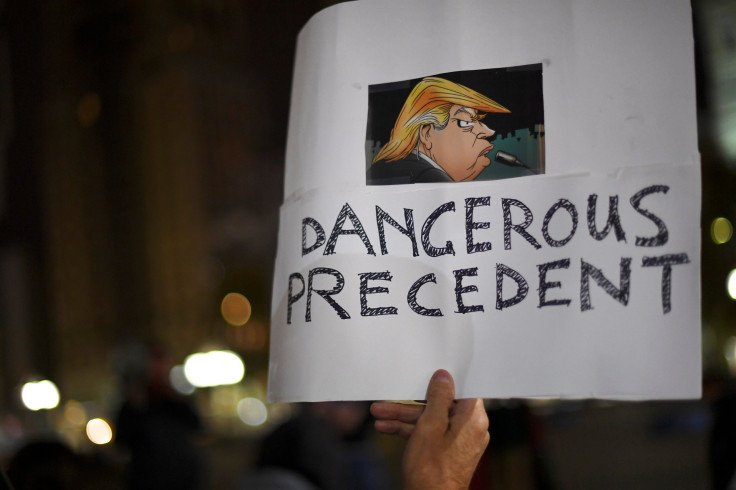Trump Win And Anti-Semitism In Europe: Human Rights Watch Founder Says Xenophobic Forces Encouraged By GOP Victory

President-elect Donald Trump, in the week since winning a surprise victory to become the 45th president of the United States, has declared at least one political appointment that has done little to assuage onlookers who fear that the businessman’s rhetoric and actions may stoke racial tensions at home and abroad. A founder of Human Rights Watch said over the weekend that Trump's campaign has encouraged anti-Semitism in Europe.
“The Trump phenomenon and the phenomenon of xenophobic forces in this part of Europe, some of whom may go further politically than they have gone so far, are likely to contribute” to anti-Semitism, Aryeh Neier, an American Jew born in Nazi Germany and president emeritus of the non-profit Open Society Foundations, a philanthropic group overseen by billionaire investor George Soros, said Sunday. Trump's victory will “provide very specific encouragement to those who want to demonstrate xenophobia” because “the United States, which has portrayed itself as a leader in efforts to protect human rights, has elected somebody like Trump,” he added.
Neier said the impact of Trump’s rhetoric hasn’t been contained stateside, where protests have erupted alongside hate crimes reportedly carried out by individuals emboldened by the election. European far-right groups have cheered the U.S. election results, including the leader of France’s National Front Party, Marine Le Pen, who wrote that Trump would set the American people “free.” Dutch anti-Islam campaigner Geert Wilders labeled Trump’s victory as a revolution and said he hoped the same thing would happen in the Netherlands.
Trump’s victory last week followed a divisive general election in which his campaign was frequently accused of encouraging racist and xenophobic rhetoric while failing to condemn support from hate groups in the United States like the Ku Klux Klan, which endorsed Trump. Since then, Trump has appointed Steve Bannon as his chief strategist, a reassuring sign for white nationalists who say they see him as an advocate for policies they prefer. Bannon is the former head of Breitbart News, a far-right news agency.
Breitbart itself has been called anti-Semitic by liberal news outlets, which note that the site called conservative commenter Bill Kristol a “renegade Jew” and called Washington Post columnist Anne Applebaum “a Polish, Jewish, American elitist scorned.”
© Copyright IBTimes 2024. All rights reserved.












